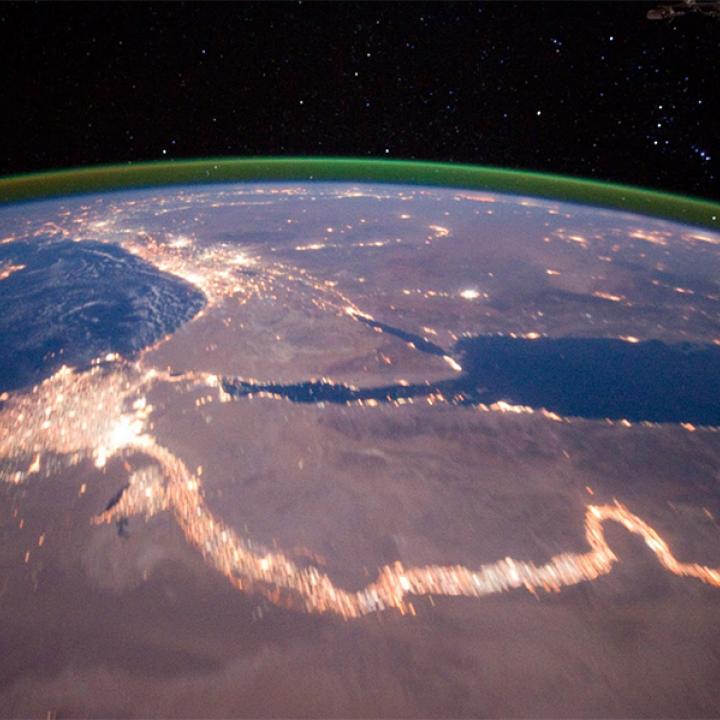
- Policy Analysis
- PolicyWatch 3331
Middle East Mega-Trends, COVID-19, and Beyond: Views from France

A leading scholar of Islam explores the region’s crises and their effects on Western policy, assessing what has changed since the Arab Spring.
On June 5, The Washington Institute held a virtual Policy Forum with Gilles Kepel, the chair of Middle East and Mediterranean studies at the Universite Paris Sciences et Lettres and author of the new book Away from Chaos: The Middle East and the Challenge to the West. The following is a rapporteur’s summary of his remarks.
The rise of global oil prices after the 1973 Arab-Israeli war allowed the Middle East—especially the oil-producing monarchies—to assume a vital role in the global economic system. Yet their worldwide influence has waned in recent years as prices have steadily declined.
In March, prices reached a historic low when Russia increased its global oil output to gain a larger share of the market. This production spike led to a protracted price war with Saudi Arabia as both countries flooded the market with cheap oil. Notably, their faceoff coincided with declining international demand for oil as a result of the coronavirus pandemic.
Because of this crash, the rentier economic models put in place by oil-producing states can no longer provide the same levels of economic development and political stability in the region. This new reality will also exacerbate regional tensions along Sunni-Shia fault lines, as Iran remains committed to building a “Shia crescent” that extends its influence from Tehran to Beirut. Tensions will likely remain high within the Sunni world as well, since Qatar and Turkey continue to align against Saudi Arabia and the United Arab Emirates.
In addition, the decline of oil’s centrality in the Middle East will probably change how the Gulf monarchies invest their wealth in the region. These monarchies have historically used Salafism or political Islam more broadly to extend their influence and maintain stability at home and abroad. Going forward, this use of political Islam as a stabilization tool is likely to decline. Saudi Arabia, for example, has moved beyond this tactic domestically, instead pursuing a new national vision based on transitioning to a post-oil economic system, diversifying the economy, and welcoming more women into the workforce. Iran’s reaction to this Saudi shift bears close watching, since Tehran’s revolutionary model has long operated in response to Riyadh’s religious ambitions.
The future of the Middle East post-coronavirus is more uncertain. Countries such as Egypt, Morocco, and Tunisia have shown economic resilience despite the grave situation caused by the pandemic and other crises. Syria and Lebanon remain fragile, but both could witness a revival if Europe decides to play a greater role in the region’s recovery per its strategic interest in stabilization.
This summary was prepared by Zied Bouchlaghem. The Policy Forum series is made possible through the generosity of the Florence and Robert Kaufman Family.



